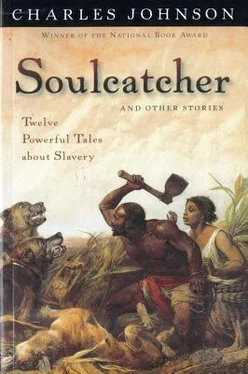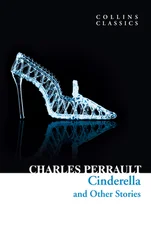His first instinct had been to flee when he saw him, but Lord, he felt tired of running. Of being alone. That he'd not counted on when he ran for freedom: the staggering loneliness. The suspicions. The constant living in fear that he might be taken back to the tortures of slavery at any time. For months, he'd been afraid to speak to anyone. Every white man was a potential enemy. No Negro could be fully trusted either. But along the way he'd been fortunate. More so than many fugitives. He met white ministers who were conductors for the Underground Railroad, men who fronted as his master long enough for him to traverse the states of North Carolina and Virginia; and here, in Boston, he'd found free blacks — the very portrait of Christian kindness and self-sacrifice — willing to risk their own lives to help him. They were deeply religious, these Negroes. Lambs of Jesus, he thought at first. They put him up in their homes, fed him, provided him with clothes and a fresh start. Even helped him pick a new name. Jackson Lee was the one he used now. And he deployed those many skills he'd learned as a slave, plus his own God-given talent, to rebuilding his life from scratch. At least, until now.
Out of the corner of his eye he could see the Hunter moving closer, circling round toward the front of the market, keeping the waterfront at Frank's back, to cut him off if he tried to run. This time the Hunted decided, no. He would stay, dying here among free black people. He'd been to their churches, heard their preachers say no man should fear death because the Son of God conquered that for all time. And no man could be enslaved, they said, if he was prepared to die.
The Hunter stopped in front of his table. He looked over the carvings, picked up one of a horse, and examined it, the faintest of smiles on his lips. "You do right fine work"
"Thank you."
"I once knew a fellah in Charleston was almost as good as you."
"That so?"
"Um-huh.' The Hunter put the carving down. 'Nigger named Frank. I don't suppose you know his work, do you?"
"No," he shook his head. "Never been to Charleston. Lived here my whole life. "Vbu kin ask anybody here 'bout that." He tilted his head toward the balding man, then at the old black woman selling fish. "Ain't that so?" sir." The balding man held out his hand at waist-level, his palm facing down. "I been knowin' Jackson since he was yea-high."
The old woman chimed in, "That's right. He belong to my church."
The Hunter's eyes narrowed, he looked at both of them irritably, said, "I think you two better mind your own damned business," then he swung his gaze back toward the Hunted. "I ain't here to play games with you, Frank."
"My name is Jackson Lee."
"Right, and I'm Andrew Jackson."
Slowly, the Hunter withdrew his pistol. His arm bent, close to his side, he pointed the barrel at the Hunted. "Get up."
Frank sat motionless, looking down the black, one-eyed barrel. "No."
"Then I'll shoot you, nigger. Right here."
"Guess you'll have to do that then."
The old woman said, "Mister! You don't have to do that!"
"Naw," the balding man pleaded. "He from round here!"
Frowning, the Hunter took a deep breath. "I told y'all to shut up and stay out of this! It ain't your affair!"
In the market there came first one shot, shattering the air. By the time the second exploded, merchants and patrons were screaming, scattering from the waterfront like windblown leaves, tipping over tables that sent potatoes, cabbages, and melons rolling into the street. When the thunderous pistol reports subsided, leaving only a silence, and the susurration of wind off the water, the only figures left in the debris of broken displays and stands were the Hunter — he was sprawled dead beneath a rug he'd pulled to the ground as he fell — and the Hunted. There were also his new friends: The black fish woman. The balding man. Both were members of Boston's chapter of the Liberty Association, devoted to killing bounty hunters on sight. The balding man was Frank's minister. The fish woman was the minister's mother. They were the ones who'd taken him in. Helped him set up his stall in the market And they were much better shots than he was.
It was good, thought Frank, to have friends — hunters in their own right — like these.
Am I sadly cast aside,
On misfortune's rugged tide?
Will the world my pains deride
Forever?
THE WHITE MOB in Pendleton, Indiana, had dragged him from the outdoor platform in the woods, where he was denouncing the evils of slavery, how it dehumanized Christian masters and bondsmen alike — this, after the townspeople had denied him use of the local Baptist church. His voice, a bronze basso profundo, filled the woods, rolling over a crowd that favored parishioners at a camp meeting. Delicate white women in the front seats fainted (as they often did when he spoke), partly because they had never heard a Negro whose oratorical skills outdistanced even those of a Cicero, and partly because of how this remarkable mulatto looked: tall, muscular from a life of field work, ship caulking, and handling coal, he stood before them broad-shouldered, with a striking mane of obsidian hair, appearing for all the world like a lion who'd decided one day to assume the shape of a man. This was the Frederick Douglass they'd read and heard so much about, of whom James Russell Lowell said, "The very look of Douglass was an irresistible logic against the oppression of his race." Oh yes, they fainted dead, these polite, white ladies in Pendleton, because he was Shakespearean in his bearing, more handsome than their husbands, with a voice that ran rill-like in their heads, and who could doubt the desire they felt for him, the fugitive slave who was the best thing that ever happened to the abolitionist movement, overshadowing even William Lloyd Garrison? lo be honest, it was better to faint than face the troubling fact that they felt themselves melting in their seats when he turned his penetrating gaze their way.
No doubt the gang of white men who entered the woods noticed how Douglass ensorcelled their women, and for a moment they were mesmerized themselves, staring up in a few unguarded seconds of awe at the lion-become-man, who not only challenged every idea they'd ever believed about Negroes, but called in question their manhood as well Could they have survived all he had? Wrestling with his master Thomas Auld's dogs (that were better fed than he was) over bones to feed himself? A whipping every week for six straight months from Mr. Covey, a well-known "negro-breaker" Auld had hired him out to when he was sixteen, and whom, once Douglass had had enough of this treatment, he had fought for two hours straight until the older man gave up, never raising a hand to him again or mentioning this shameful defeat to other white men? Could they have conceived his masterful plans for escaping bondage? Taught themselves (and other slaves) to read? No, they were not — and would never be — his equal. And so they fell upon him, there in the woods, tearing down the platform after hauling him from it (that took twelve grown men), with him trading two blows for each of theirs, shifting instantly from eloquent oratory to raining punches upon them that broke cartilage and bone until by the sheer weight of their numbers they pinned him down, kicked and pummeled him round his great head, and then at last left when he lost consciousness. They were bruised, bleeding from their noses, and limping, but they were sure the abolitionist nigger from New England was dead.
Must I dwell in Slavery's night,
And all pleasure take its flight,
Far beyond my feeble sight,
Forever?
Читать дальше












